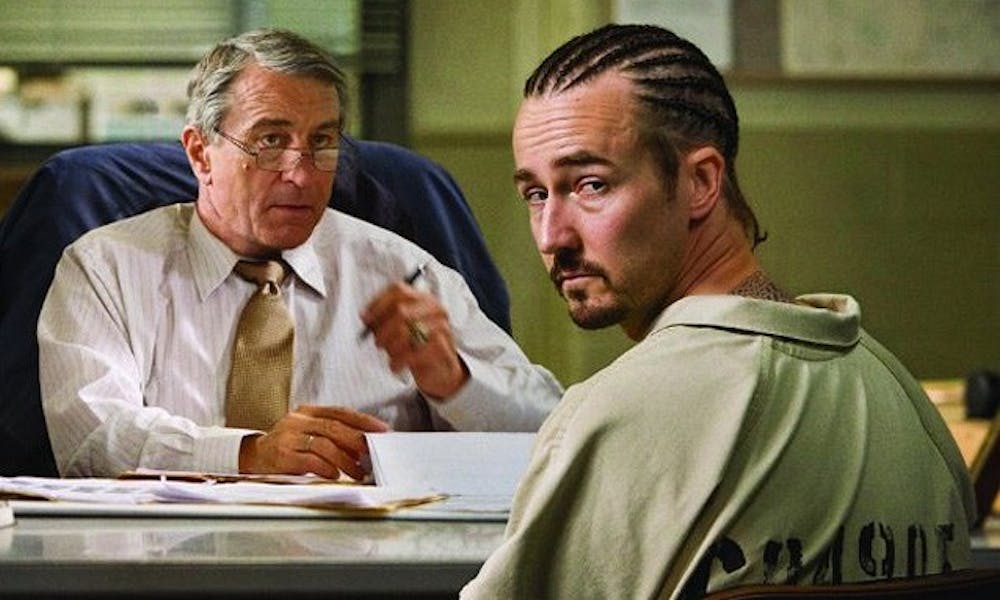Edward Norton looks good in cornrows, but beyond the hairstyle there lies a burning house and a tale of guilty consciences. With three main characters, as many settings and a bare-bones plot, Stone has all the makings of a cerebral film—one driven almost entirely by character and theme.
Gerald “Stone” Creeson (Edward Norton) works with his wife Lucetta (Milla Jovovich) to convince his parole officer Jack Mabry (Robert De Niro) that he is stable enough for early release. From the outset, Stone—who has murdered his grandparents—psychoanalyzes Mabry, insisting he examine his own feelings of guilt. Stone asks Mabry to answer his own questions, reversing the typical patient-therapist relationship, while at the same time Lucetta seduces Mabry in Stone’s own home.
By portraying Stone with just the right balance of mystery and vulnerability, Norton forces the viewer to take into consideration the moral, religious and philosophical questions raised by the guiltless murderer. If Stone succeeds in tackling these difficult subjects in an arresting way, the credit goes almost entirely to the film’s actors.
An inevitable distancing occurs between the viewer and the characters when Stone abandons his desire for freedom. The film then descends into an overreliance on nature-based symbolism, paired with excessive use of minimalist musical tones, which are meant to be emblematic of Stone’s spiritual evolution.
No relief from this contrived section of the film is offered until close to the end, when an unexpected dose of suspense reignites interest while still preserving the film’s intellectual nature. In spite of its faltering moments, faithful movie watchers will find Stone well worth the wait.
—Maggie Love
Get The Chronicle straight to your inbox
Sign up for our weekly newsletter. Cancel at any time.

